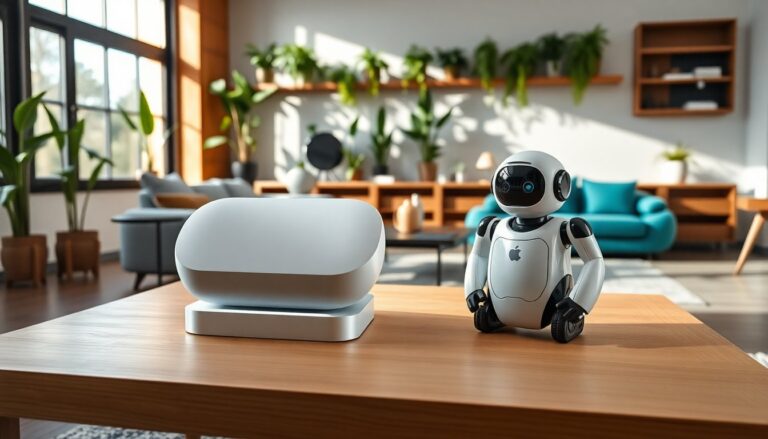Argomenti trattati
In the world of technology, few brands inspire as much anticipation as Apple. The company is preparing to launch two innovative smart home products that have generated considerable excitement among tech enthusiasts. However, the expected pricing for these devices may leave potential buyers apprehensive.
Reports suggest that Apple plans to introduce a home hub in 2026, followed by a sophisticated robot in 2027. While details about their features are still unfolding, it is clear that the price tags are anticipated to be significantly high, which could deter many consumers.
The anticipated home hub: a new centerpiece for smart homes
The first product on the agenda is the much-discussed home hub, designed to act as the central unit of any smart home ecosystem. This device aims to integrate various smart technologies, enabling users to control everything from lighting and heating to security systems seamlessly. Given Apple’s reputation for quality and innovation, expectations are high for this home automation product.
Features that could justify the price
While specific details remain limited, industry insiders suggest that the home hub will feature advanced functionalities, including voice recognition and artificial intelligence capabilities. These enhancements aim to create a more personalized user experience, making it easier for individuals to manage their homes. However, this cutting-edge technology comes with a cost, and Apple is reportedly targeting a steep price point that may present a barrier for many consumers.
In addition to its impressive features, the home hub is expected to support a wide range of third-party devices, allowing users to create a customized smart home experience. This flexibility could be a significant selling point, but the anticipated high price may still raise concerns among potential buyers.
The 2027 robot: a leap into the future
Following the home hub’s introduction, Apple is set to unveil a groundbreaking robot in 2027. This device is expected to redefine the concept of a household assistant. Imagine a robot that not only performs routine tasks but also learns from its surroundings, adapting to the unique needs of its users.
Innovative technology meets steep expectations
With such ambitious goals, it is unsurprising that the pricing for this future robot is expected to exceed that of the home hub. The prospect of a robot equipped with advanced sensors, machine learning algorithms, and enhanced mobility features is undoubtedly appealing. Yet, these innovations will likely come with a price tag that many may find daunting.
Like the home hub, the robot is expected to integrate seamlessly with existing Apple products, enhancing the overall user experience across devices. This level of integration is a hallmark of Apple’s design philosophy, but it also contributes to the high costs associated with their products.
Consumer reactions and market implications
The steep pricing of these upcoming devices raises important questions about consumer acceptance. While Apple enthusiasts may be inclined to invest in the latest technology, the broader market may respond differently. High prices could limit the accessibility of these innovations, particularly among average consumers who already face budget constraints in a fluctuating economy.
Moreover, the competitive landscape of smart home devices complicates Apple’s pricing strategy. Other brands are emerging with more affordable options that offer similar functionalities. Consequently, Apple must not only justify its premium pricing through unique features and high-quality design but also ensure that its products deliver exceptional value.
Reports suggest that Apple plans to introduce a home hub in 2026, followed by a sophisticated robot in 2027. While details about their features are still unfolding, it is clear that the price tags are anticipated to be significantly high, which could deter many consumers.0

